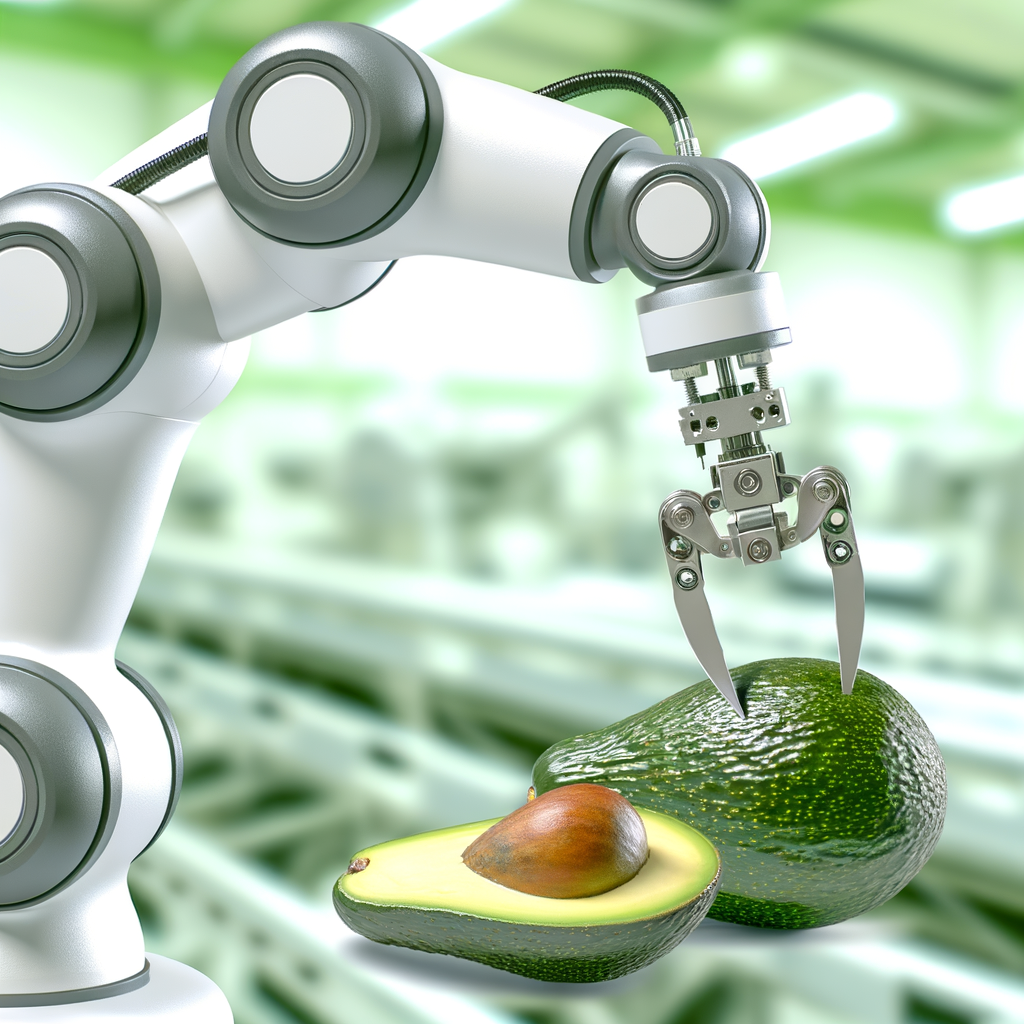Robotics Firm Acquires Avocado Peeler
In what might be the most unexpected merger of the year, the robotics company JLS, known for its robotic packaging solutions, has acquired FTNON, a company whose specialty lies in automating, among other things, the peeling of avocados.
While this deal may raise a few eyebrows—after all, robots and avocado peelers aren’t a combination you hear about every day—it’s arguably a perfect fit for a food industry that’s speeding headfirst into automation.
A Match Made in Produce Heaven
What makes this acquisition intriguing is the specific expertise that FTNON brings to the table (quite literally). FTNON’s automation technology peels and processes whole produce like avocados. The growing demand for fresh, pre-prepared foods in consumer markets has made this automation not just a novelty but a necessity.
For example, FTNON’s avocado peeling machines have been a game-changer in the guacamole industry. Manually peeling avocados at an industrial scale is labor-intensive, messy, and less efficient. With machine automation, food processors can increase speed, reduce waste, and maintain the quality and consistency that consumers crave in their pre-packaged guac.
Enter JLS, a robotics firm that knows its way around advanced automation. By acquiring FTNON, JLS aims to integrate fruit and vegetable processing with its own robotic expertise in packaging, making the supply chain from field to fridge even smoother. The marriage of these two companies could revolutionize how we interact with fresh foods, all driven by smart automation.
JLS’s suite of robotics has long focused on improving food safety and packaging efficiency. With FTNON, the two firms together may now take on the challenge of automating food processing to a whole new level.
Why Avocados—And Why Now?
You’re probably thinking: “Why avocados?” Well, there’s more to this story than just guacamole season.
Avocados have become a symbol of modern dietary trends. From being smashed onto toast to making their way into smoothies, salads, and sushi, this green powerhouse is a best-seller. According to market research, the global avocado market is expected to reach nearly $23 billion by 2026. That’s a whole lot of avocados!
But processing avocados, from carefully removing the skins to slicing the flesh without damaging it, is no easy task. Consumers demand a product that’s fresh, visually appealing, and high-quality. A bruised or overripe avocado is an immediate turn-off, so it makes perfect sense for a company like JLS to invest in automation that ensures these sensitive fruits are handled with care.
Plus, amid global labor shortages and rising costs, the food industry is turning to technology to ensure consistency, speed, and hygiene. In this environment, automating the peeling and processing of avocados may be one of the smartest and most timely moves in the fresh food industry.
What’s Next for Robotic Food Processing?
So, where do we go from here? Avocados today, but tomorrow… tomatoes? Pineapples? Mangoes?
With the acquisition of FTNON, JLS has signaled bigger plans for the automation of fresh food processing. This shift is less about replacing human jobs and more about complementing them in ways that increase efficiency and minimize the grunt work.
Here’s the thing: peeling avocados at scale was once a monotonous and highly manual task, prone to error and inefficiencies. With FTNON’s technology and JLS’s robotics expertise, human operators are now freed up to handle higher-skill, higher-value jobs—aside from just getting robots to do the dirty work of peeling.
We can expect JLS to explore other high-demand, labor-intensive food processing tasks next. Peeling, cutting, pitting, and even packaging could become more automated in the coming years. This means that your grocery store’s fresh produce aisle of tomorrow will likely contain even more robotically processed items, increasing availability and extending shelf life while also reducing food waste.
The Future of Food Preparation
The acquisition of a specialty food-processing technology company by a robotic packaging firm may seem overly niche at first glance. But this move could signify a broader transformation on the horizon for the way food products are handled and delivered in our kitchens—or straight to our doorsteps.
By acquiring FTNON, JLS is clearly positioning itself to become a pivotal player in the future of food tech. These robotic technologies do more than just peel avocados— they shape how food gets to the consumer safely, efficiently, and sustainably.
So, while it may seem whimsical that robots can now peel avocados to make the perfect guacamole, the underlying significance of this acquisition points to something far bigger. As JLS continues to innovate in the field of automation, the way our food is sourced, handled, and packaged is about to get a high-tech makeover.
And that is just the first slice.
—
Key Takeaways:
As automation continues to rise, the world of food processing is transforming—rapidly and efficiently—and your future meals might arrive fresher, faster, and perhaps with a little help from our robotic friends.



